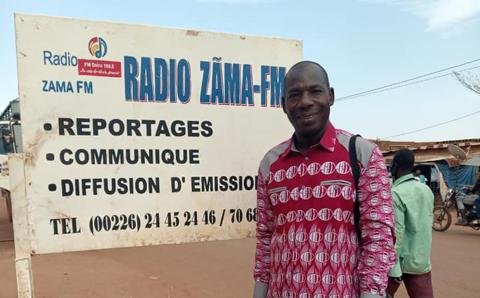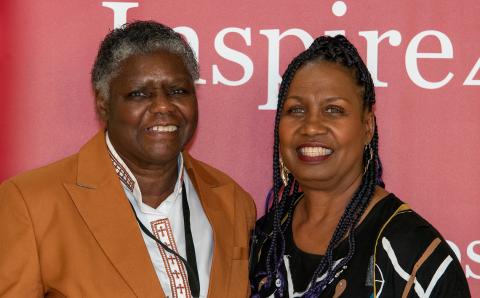“They just aren’t the same person anymore. Dementia has changed the person I love.” I hear it time and again. The process of dementia can change personalities, vocabulary choice, and even interests. It can cause someone to forget the name of their spouse, child, or best friend. There is no sugarcoating it. Dementia is an awful and transformative disease. Those we know best can become complete strangers to us.
As his chaplain, I asked John, a lifelong pastor, how his spiritual life was while living with dementia. He lamented, “I can no longer officiate weddings or offer communion.” John expressed his struggle in knowing how to relate to God now. For years his parishioners had expected him to bring God’s Word to them, to pray for them, and to equip them in their spiritual journey, but things were different now. His journey with dementia had changed so much. Who was he now?
Meanwhile, John’s wife, Ruth, had her own struggles. Ruth was used to a husband who was decisive, a strong leader, and cared well for others. However, since the dementia began to take its toll on John, she wasn’t sure who her husband was becoming. Her role in the family took a sudden turn. Leadership was forced upon her, and it wasn’t what she wanted. Ruth wasn’t sure how to be the spouse that John needed. Loving John the pastor was what she knew, but loving John with dementia felt like a mountain she didn’t have the energy to climb.
Needless to say, this newfound identity crisis put John and Ruth at odds with each other. Arguments kept erupting. They didn’t know how to work together anymore. Dementia had taken over John’s life, and Ruth’s well-being was collateral damage. They weren’t the same people anymore, and they were struggling to love each other well.
An Emotional Journey
Journeying alongside people experiencing dementia can be emotionally exhausting. I serve as a chaplain in a retirement community, and I have walked alongside many people who notice their memory is slipping, receive a diagnosis for dementia, and slowly (or sometimes quickly) begin to experience significant changes in their daily lives. At times, it is draining because there are so many moments of hope followed by days of despair. One day I can have a conversation with one of my residents that is full of clarity and specificity, but the next day that person mistakes me for their son, or they wonder when they are going to get a ride to the home they moved away from years ago.
When family and friends hear of their loved one’s initial diagnosis, they usually rally and provide all kinds of support. They visit often and find creative ways to engage. Unfortunately, as the dementia progresses and the person they love becomes less like they used to be, many friends and family begin to fade away, and the one with dementia becomes isolated. This pattern of isolation doesn’t happen only with ordinary people. It affects even the most famous and popular around us. In his book Dementia: Living in the Memories of God, John Swinton retells the story of Ronald Reagan’s experience of dementia. As Reagan found it more difficult to recognize his friends, those friends stopped showing up for visits. Swinton asks, “If someone who has been one of the most powerful men in the world has difficulties holding onto his network of friendships, what hope is there for … ?” Fill in the blank. Isolation affects many who have dementia, and so often it is because those closest to them don’t feel known by them. And if someone doesn’t know you, do you really know them?
As Christians, Jesus calls us to love our neighbors, but what if loving our neighbor feels like we are loving a stranger? When your friend or family member is on the journey of dementia, it can often feel like you don’t know who they are. We often talk about how the one with dementia doesn’t remember people’s names, and that can deter visitors, but I suggest that what ultimately deters us from visiting is that we don’t recognize them. In the midst of such a valley as this, how do we keep following in the way of Jesus and love those who have become strange to us?
Lean Into Love
Adam Young, therapist and host of The Place We Find Ourselves podcast, says in his 95th episode, “Love always disrupts the status quo.” He says that if your relationship with your spouse, parent, or friend is the same as it was five years ago, then there is a good chance you haven’t been loving that person well. Change in the way we relate to one another is inevitable when we are loving well because we will be vulnerable enough to be honest about how we can better honor one another. Dementia forces the change upon us, whether we like it or not. Often we are running to catch up with the change, but if we can say that change is an opportunity to love and that love will contribute to further change, then we might be willing to keep visiting with our spouse, parent, grandparent, or old friend who has dementia. We might be willing to say no to our instinct to flee and say yes to the Spirit’s whisper to lean into love.
Saying yes to the Spirit takes courage, but the Spirit promises to never let us visit alone. Throughout the Hebrew Bible, God comes to visit with his people, even when they have changed. In Genesis 3, God visits the garden and calls out, “Where are you?” Of course, God knows that Adam and Eve have fallen after the ways of the serpent, but in grace he visits them, meets them in their shame, and provides them with clothing. That same God visits us today and goes with us as we visit his beloved children.
“Visitation,” Swinton says, “is the embodiment of God’s actions toward creation. As we come close to others, as we visit the sick, the prisoner, the poor, the broken, so we carry within us and reveal the God who visits. As we visit those with dementia and those who care for them, so we bring God with us, so to speak, in our friendship, our thoughtfulness, and our enduring presence. As we visit one another and allow others to visit us, so we can learn to see and to hold one another well.”
God has made us for one another. May we go in courage to love those who have become strangers to us because of the God who knows us even when we don’t know ourselves.
About the Author
Travis Jamieson serves as the senior pastor of Palo Alto Christian Reformed Church in Palo Alto, Calif. Previously, he served as a chaplain with older adults.








